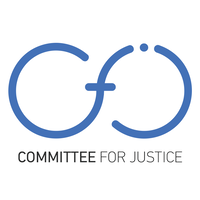Human rights organisations documented 1,962 violations during the first quarter of this year in prisons and official detention centres in Egypt.
The organisations confirmed the increase in detainees who have been unjustly imprisoned for years due to their opposition to the military rule and the coup against the first elected civilian president.
According to the Committee for Justice human rights organisation, violations of the deprivation of liberty were in first place, at about 59 per cent of the violations. This was followed by enforced disappearances and poor detention conditions, at approximately 17 per cent each (336 and 335 violations, respectively). Then violations of torture by 5.5 per cent (108/1,962), and violations of deaths in detention facilities by 0.9 per cent (18/1,962).
The organisation documented 283 violations; they were distributed among poor detention conditions at 41.6 per cent (118/283), followed by 19.7 per cent of the documented violations of both arbitrary deprivation of liberty and enforced disappearance. Then came the 18 per cent violation of torture (52 violations), and one documented case which included deaths in detention facilities. In January of the first quarter of this year, the list of monitored violations was 65.8 per cent (1,291/1,962). Cairo Governorate also topped the list of the 18 governorates in which violations were recorded, with 48 per cent of breaches.
The names of 37 headquarters were issued in which 616 violations occurred during the first quarter of this year. Dar Al-Salam Police Department, the Eastern Security Teams, and Shebin Al-Kom Prison were identified. The organisation’s report, “The State of Exception,” accused the state of using its sovereign power to violate the law under the pretext of protecting or achieving “the public good.”
The Egyptian regime began in 2021, directing the most potent attack on Egyptian civil society, which is represented in the issuance of the new regulations for the Associations Law, in a firm step to eradicate civil work from Egypt. These claims were evident in several detained human rights activists’ statements, such as Sulafa Majdi and Marwa Arafa, that they were subjected to torture.
Activist Islam Orabi also announced his hunger strike in protest against his second forcible disappearance. The authorities also renewed the imprisonment of some human rights activists and political figures such as Abdel Moneim Abu Al-Fotouh, Patrick George, Alaa Abdelfattah, and Muhammad Al-Baqer. This period also witnessed an explosion of the coronavirus infection inside the New Damietta department. Ten inmates caught the virus due to their contact with one of the infected.
The Egyptian authorities also carried out the execution of at least seven prisoners in early 2021, while courts issued death sentences during January and February against 67 defendants. The judge transferred the papers of 48 defendants to the Mufti in preparation for their execution. The first quarter of this year also witnessed the “systematic” crimes of enforced disappearance from inside detention centres and the process of rotating victims in fabricated cases. It brought new charges against them and detained them immediately after the end of the previous one.
Among the most prominent pieces of evidence for this is the rotation of lawyer Islam Ahmed Salama on January 16 after the Criminal Court issued a decision to release him on bail of EGP 2,000 when his family was surprised for the second time that he had disappeared from inside the detention facility. In its report, the Community for Justice called for abolishing the emergency law and all decisions issued according to it and in conjunction with it, and the application of alternatives available in the penal code. It also called for pressure on Egypt to implement Articles 14 and 15 of the International Covenant on Civil and Political Rights. The competent authority has the right to a fair and public trial and the prohibition of trying individuals again on charges that they were acquitted of or whose sentence was spent on preventing the phenomenon of “rotating detention.”
The organisation demanded that the Egyptian authorities be pressured to sign the Convention for the Protection of All Persons from Enforced Disappearance, amend legal texts criminalising torture, and oblige the judicial authorities to abolish judgments based on confessions extracted under torture. It also called for the security authorities to be bound by rules for interrogating detainees, preventing impunity for perpetrators of these crimes, enabling victims to file complaints, and allow civil society to monitor detention facilities, in particular the national security headquarters.





Recent Comments